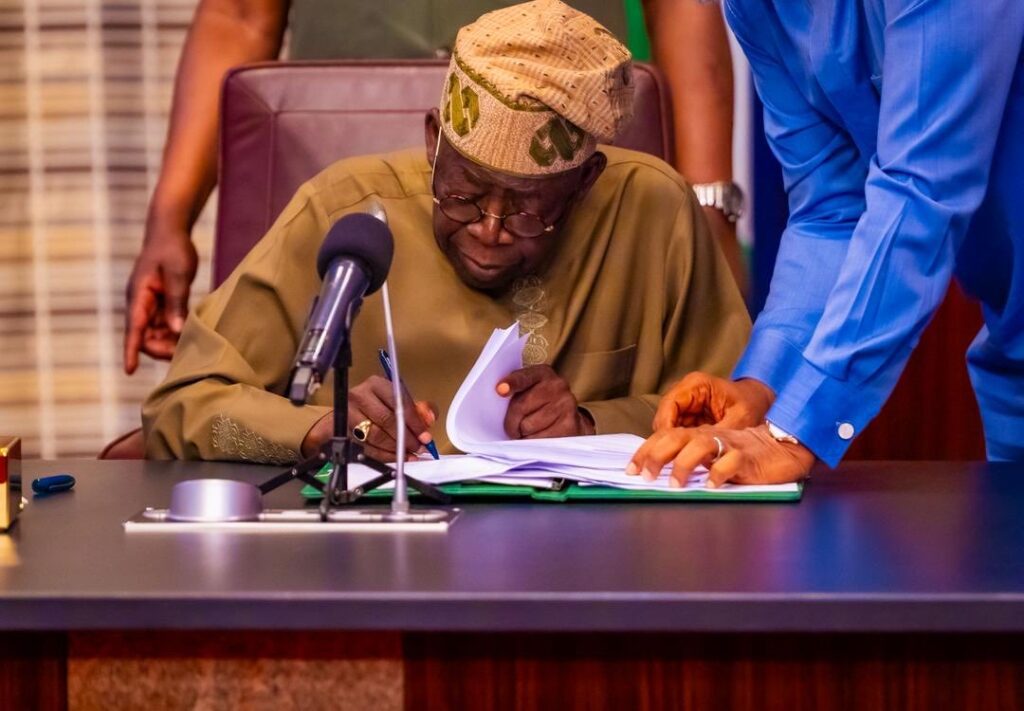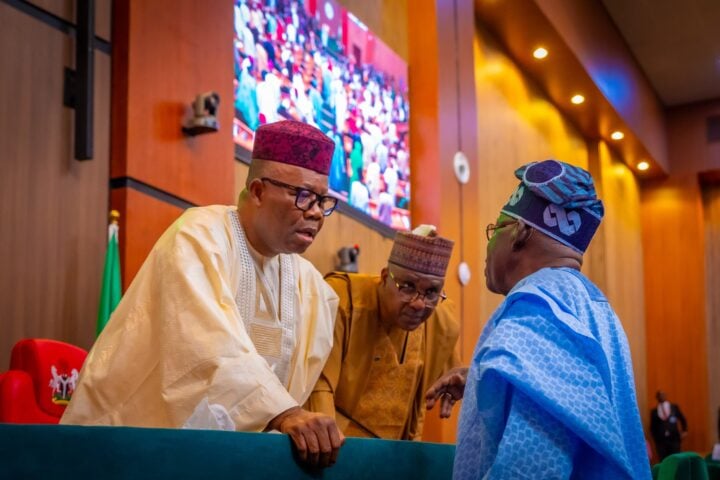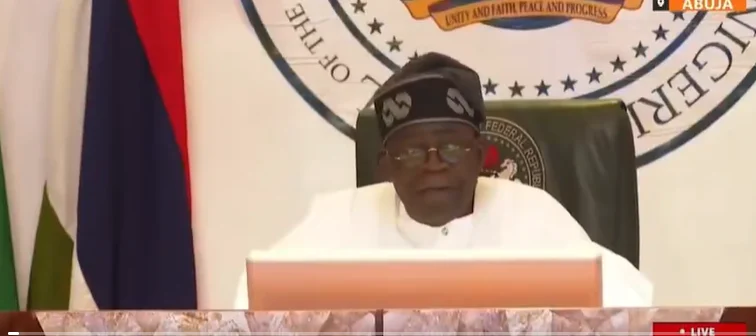President Bola Ahmed Tinubu has signed four major tax reform bills into law, initiating the most significant restructuring of Nigeria’s tax administration in decades. The reforms are expected to unify revenue collection, eliminate inefficiencies, and significantly boost government earnings.

Overview of the New Tax Laws
The newly signed legislation includes:
- Nigeria Tax Bill – Consolidates multiple tax statutes into a unified framework to improve clarity and compliance.
- Nigeria Tax Administration Bill – Establishes a uniform set of rules and procedures for tax administration across all tiers of government.
- Nigeria Revenue Service (Establishment) Bill – Replaces the Federal Inland Revenue Service (FIRS) with the Nigeria Revenue Service (NRS), a more autonomous and integrated agency.
- Joint Revenue Board (Establishment) Bill – Creates a national structure to coordinate revenue administration, including a Tax Appeal Tribunal and a Tax Ombudsman.
The implementation of these laws is set to begin on January 1, 2026, providing a six-month transition period for federal and state agencies.
Rationale Behind the Reforms
According to government officials, the shake-up is aimed at addressing Nigeria’s low tax-to-GDP ratio, currently at approximately 10.8 percent—one of the lowest in Africa. The reforms are also meant to reduce duplication among over 100 revenue-collecting bodies and create a more business-friendly tax environment.
President Tinubu stated that the reforms were based on recommendations from the Presidential Committee on Fiscal Policy and Tax Reforms, led by Taiwo Oyedele, and designed in consultation with stakeholders across the public and private sectors.
Financial Impact
In the first quarter of 2025, Nigeria’s tax and customs revenues reportedly increased by ₦4.4 trillion, prompting Tinubu to revise the national budget upward from ₦49 trillion to ₦54.2 trillion. The reforms are expected to further expand the country’s revenue base, reduce its dependence on borrowing, and support broader economic growth initiatives.
Reactions and Concerns
The reforms have drawn mixed reactions:
- Supporters, including business groups and economic reform advocates, see the changes as a long-overdue step toward efficiency and growth.
- Critics, particularly from some northern states, argue that the shift in value-added tax (VAT) allocation based on contribution rather than population could disadvantage less industrialized regions.
Despite the criticism, the federal government insists the reforms are neutral and technical in nature, focused on transparency and revenue modernization.
Key Changes Ahead
| Area of Reform | Change Introduced |
|---|---|
| Revenue Collection | FIRS replaced by NRS with wider mandate |
| Tax Dispute Resolution | Establishment of Tax Appeal Tribunal and Ombudsman |
| Compliance and Enforcement | Standardized rules across all tiers of government |
| Taxpayer Experience | Simplified and consolidated tax framework |
Conclusion
The passage of these tax bills signals the Tinubu administration’s intent to overhaul Nigeria’s fiscal structure in line with global best practices. As the country prepares for implementation in early 2026, the focus will be on execution, coordination across federal and state agencies, and ensuring that the reforms lead to measurable improvements in revenue generation and economic stability.

















